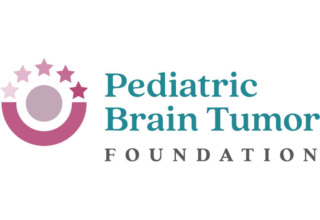Pediatric Brain Tumor Foundation Statement on the Reported NIH Grant Review Pause
May is Brain Tumor Awareness Month, a month dedicated to giving a voice to the brain tumor community and raising awareness for a cure. As the largest patient advocacy funder of pediatric brain tumor research and leading champion for families and survivors battling this disease, the Pediatric Brain Tumor Foundation is marking this year’s Brain Tumor Awareness Month by shining a light on the impact that brain cancer has on tens of thousands of children, teens, and survivors across the country.
Unlike other forms of cancer, which have relatively higher survival rates thanks to the medical advancements of the last century, current treatment approaches are not effective on most types of pediatric brain tumors. Brain tumors represent the no. 1 cause of cancer deaths among children, and survivors are left with lifelong side effects because of treatments’ impact on their brain development. Additionally, because the patient population is small, large-scale investments to improve pediatric brain tumor patients’ survival rates and quality of life often take the backseat to other cancer types and diseases.
PBTF’s Brain Tumor Awareness Month campaign “Pediatric brain tumors have a name” shows that children with brain tumors are more than a statistic. They each have a name and story to tell beyond their diagnosis, and we call on the public to help us write the next chapter for every child battling brain cancer.
“A pediatric cancer diagnosis can have a huge impact on a child’s life, but it does not mean they’ve lost their potential or that it’s the only thing that defines them,” shared professional musician and childhood brain tumor survivor Zack Pomerleau in a recent interview with PBTF. “As a child, I was seen as the sick kid who had talent, instead of just a talented kid. My illness had nothing to do with my talent. While my diagnosis is a part of my story that’s given me my perspective today, my talent and love for music are what I want to be known for.”
PBTF is committed to helping all pediatric brain tumor patients, families, and survivors like Zack realize their full potential by:
Curing pediatric brain tumors is a mission PBTF can’t tackle alone. We’re grateful for organizations like Bayer who are supporting our efforts this May to reach more patient families and spread awareness about pediatric brain tumors.
“This Brain Tumor Awareness Month, Bayer is proud to support the Pediatric Brain Tumor Foundation – who have spent decades making continuous strides in addressing the needs of this oftentimes underserved patient population,” said Nelson Ambrogio, Senior Vice President and General Manager, U.S. Oncology at Bayer. “In line with Bayer’s commitment to advance treatment options for pediatric and rare cancers, we recognize the importance of providing education and support for patients and their families facing this devastating disease.”
About the Pediatric Brain Tumor Foundation
Every day, 13 children and teens are diagnosed with a brain tumor, the deadliest childhood cancer. Every day after, they’re in a fight for their life. It’s a fight the Pediatric Brain Tumor Foundation is here to help families win. A leader in the brain tumor and childhood cancer communities, PBTF’s mission of Care. Cure. Thrive. reflects our commitment to curing all pediatric brain tumors and transforming how children and their families are cared for. Since 1991, PBTF has provided strategic leadership and funding to accelerate the number of targeted therapies for children battling brain tumors today, while equipping families with the patient-family education, financial relief, and emotional support they need to navigate their child’s journey. A world without childhood brain tumors is possible when we work together to put kids first. Learn more at www.curethekids.org.
Hydrocephalus, commonly known as “water on the brain,” is a condition that can occur in children with brain tumors. It involves an accumulation of cerebrospinal fluid (CSF) that can cause increased pressure inside the skull, leading to various symptoms and complications.

